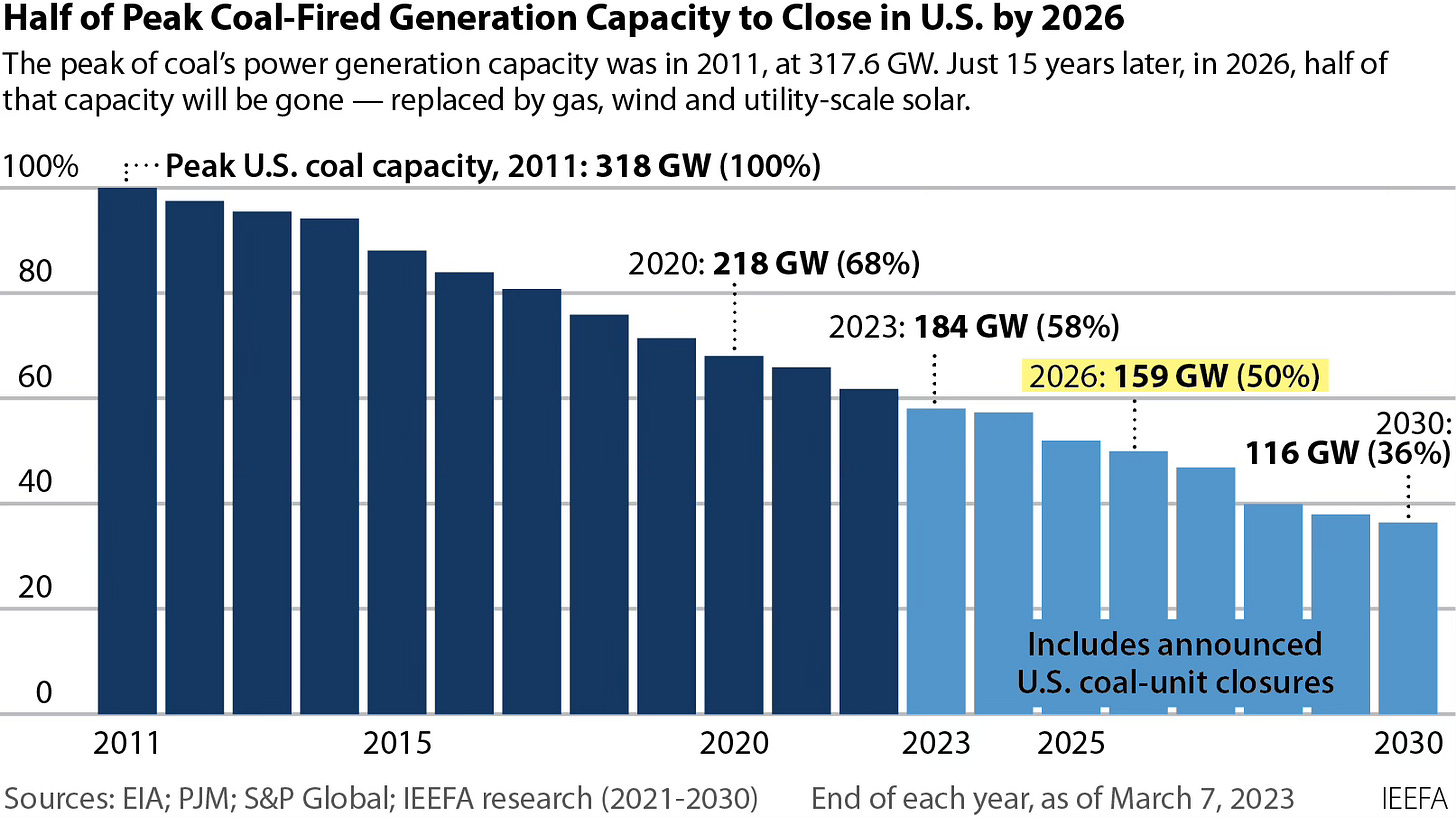Memorial Holiday Blackouts in Louisiana
The Direct Cost of ESG Ideology and the Paris Accord Agenda
Over Memorial Day weekend, families across New Orleans and surrounding parishes in Louisiana faced an unsettling reality: rolling blackouts and emergency conservation warnings from the Midcontinent Independent System Operator (MISO). The culprit wasn’t extreme weather or unexpected equipment failures—it was a deliberate shortage of reliable generation capacity, brought on by politically motivated corporate decisions and environmental activism run amok.
The blackouts were not a surprise. They were predictable—and preventable. And it’s time we name the names: American Electric Power (AEP), Cleco, and the Sierra Club bear direct responsibility for engineering this reliability crisis. Their embrace of the Environmental, Social, & Governance (ESG) agenda and its’ corresponding Paris Climate Accord-aligned decarbonization goals has turned Louisiana’s once-reliable power system into a fragile house of cards.
The Cost of Shuttering Dolet Hills
At the center of this reliability crisis is the 2021 closure of the Dolet Hills Power Station, a 650 MW lignite-fired facility in DeSoto Parish, Louisiana operated by AEP’s subsidiary SWEPCO and co-owned by Cleco. This one plant could have significantly alleviated MISO’s 600 MW capacity shortfall during the peak holiday weekend. But instead of producing affordable, reliable power for Louisiana families, Dolet Hills now sits idle—shut down as part of a legal settlement with the Sierra Club, which has made shutting down coal its top priority.
“The retirement of Dolet Hills wasn’t about reliability or economics—it was about politics. It was a virtue signal to ESG investors and green activists who care more about emissions reports than whether Americans can keep the lights on.”
Over the last five years, AEP has retired more than 2,600 MW of coal generation in the MISO region. These closures—Conesville, Dolet Hills, and others—are branded as “transitions” or “modernizations,” but the consequences are unmistakable: fewer dispatchable resources and more instability.
ESG and the Paris Accord: Silent Grid Killers
AEP and Cleco have been eager to demonstrate their allegiance to ESG principles and the Paris Climate Agreement. In their public-facing investor materials, AEP brags about its net-zero by 2045 goal and coal phase-out strategy.
What they won’t tell you is that this ideology has costs. The closure of Dolet Hills not only stripped away reliable power—it also eliminated over 370 high-wage jobs, including 274 at the Dolet Hills Lignite Mine, which was also shutdown in 2021.
“This wasn’t just a plant closure. It was a political sacrifice. A sacrifice of jobs, a sacrifice of stability, and now, a sacrifice of public safety.”
This is part of a broader reliability collapse across MISO. Since 2015, the region has lost over 18,000 MW of coal-fired generation. Replacing those megawatts with intermittent renewables has proven wholly insufficient. Wind and solar are not reliable during peak demand periods—especially not during a still, hot Louisiana holiday weekend.
The Sierra Club’s Role
Let’s not let the Sierra Club off the hook. Its “Beyond Coal” campaign uses litigation and pressure campaigns to force premature retirements through consent decrees—effectively writing energy policy through the courts.
Dolet Hills’ closure came about as part of one such agreement. With ESG investors cheering from the sidelines, AEP and Cleco folded without a fight. No economic justification. No reliability review. Just a political calculation.
“They got their ESG score boost. The people of Louisiana got blackouts.”
What Comes Next?
This weekend’s blackouts are just a taste of what’s coming unless policymakers—and utility commissioners—course-correct.
Here’s what must be done:
Eliminate the federal production tax credit and repeal the Inflation Reduction Act.
Prohibit government subsidies, tax credits, and contracts for companies aligned with the Paris Agreement or enforcing ESG mandates.
End consent decree-based utility policy. Utilities should not be allowed to dismantle critical infrastructure in private settlements with activist groups.
Rescind the Endangerment Finding that claims that Greenhouse Gas Emissions are hazardous to the environment & human health. Blackouts are dangerous.
Implement firming (a reliability standard for all generators) - A market that rewards reliability will lead to reinvestment in reliable generation. That means dispatchable power—natural gas and yes, coal—that can perform on demand.
New Orleans didn’t lose power because of bad weather. It lost power because of bad policy. Ideology has replaced engineering. Virtue signaling has replaced energy security.
It’s time to flip the switch, back to affordable and reliable energy.
Sources:






As a Louisiana resident this is interesting to see since I didn’t hear about it at all. I’m not a NOLA resident but am only about an hour away.
Our grid is primarily natural gas and luckily the penetration of intermittent sources has not been as extensive as some other states. Wind doesn’t exist here and solar is a very small amount of generation. There are a few plants that are dual-fuel, including one near me called Big Cajun 2, that burns gas or coal depending on pricing and other factors.
Dolet Hills is very far away from New Orleans so I’m not sure if this can be tied directly to that retirement. However, Entergy in this area has been pumping and talking about “clean energy” more aggressively since Biden got in office back in 2020. The rhetoric has tamped down a bit and they are aware of the reliability crisis looming but I really hope they get serious about hardening our grid and putting some real dispatchable resources back in the mix.
Sorry to ramble but I appreciate information about my area. Thank you!
With this event, the one in the Iberian Peninsula and more and more now being reported from a variety of places, hopefully they will serve to only hasten the demise of the entire Climate Change religion of lunacy.
Dear Lord, please!